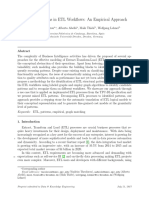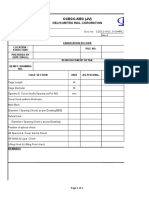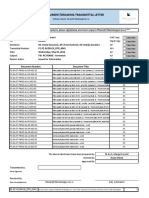0% found this document useful (0 votes)
163 views15 pagesAnsible Basics PDF
This document provides an overview of the main features and concepts of Ansible, including:
- Ansible is agentless, secure, supports both provisioning and deployment tasks, and is easy to get started with. It is data-driven and idempotent.
- Inventory can be static, using ini files to define groups of hosts, or dynamic by integrating with cloud services. Facts gather hardware and OS details about managed hosts.
- Playbooks define workflows using includes, roles, variables, templates, modules, tasks, handlers, and more to automate configuration, deployment, and management of systems.
Uploaded by
bobquest33Copyright
© © All Rights Reserved
We take content rights seriously. If you suspect this is your content, claim it here.
Available Formats
Download as PDF, TXT or read online on Scribd
0% found this document useful (0 votes)
163 views15 pagesAnsible Basics PDF
This document provides an overview of the main features and concepts of Ansible, including:
- Ansible is agentless, secure, supports both provisioning and deployment tasks, and is easy to get started with. It is data-driven and idempotent.
- Inventory can be static, using ini files to define groups of hosts, or dynamic by integrating with cloud services. Facts gather hardware and OS details about managed hosts.
- Playbooks define workflows using includes, roles, variables, templates, modules, tasks, handlers, and more to automate configuration, deployment, and management of systems.
Uploaded by
bobquest33Copyright
© © All Rights Reserved
We take content rights seriously. If you suspect this is your content, claim it here.
Available Formats
Download as PDF, TXT or read online on Scribd
/ 15





























































































